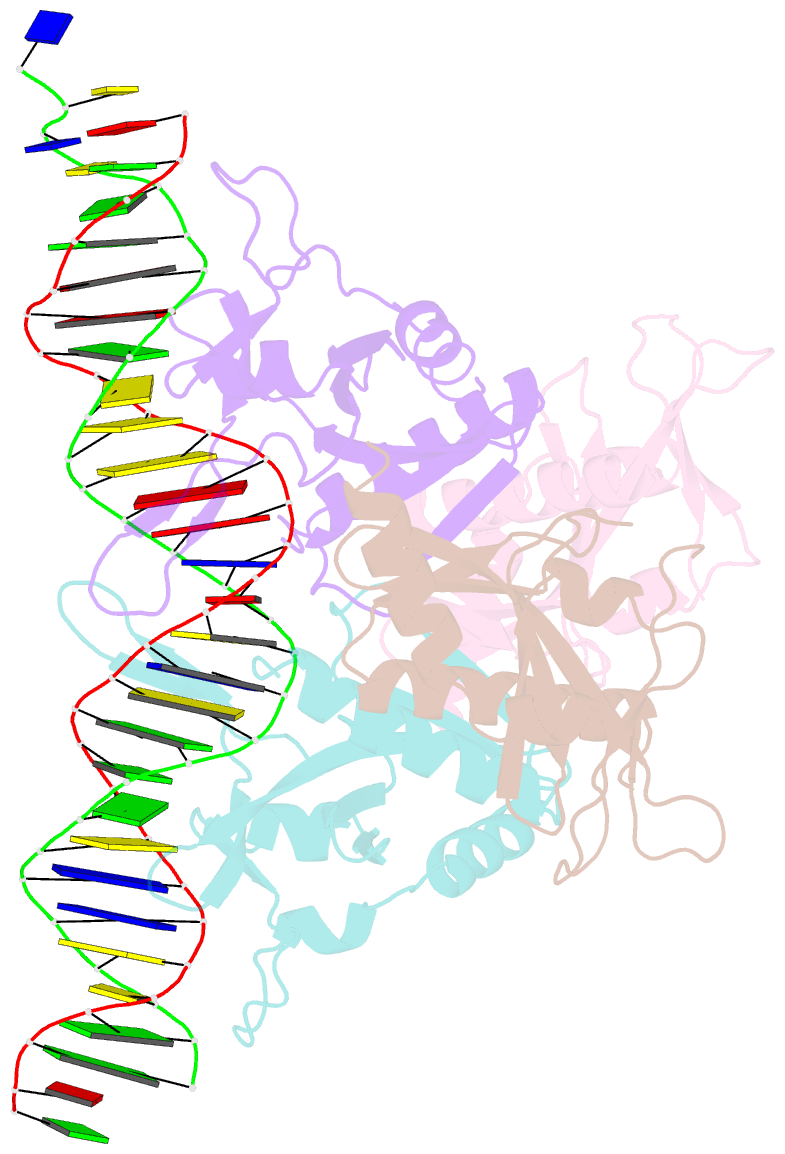Summary information and primary citation
- PDB-id
- 2ost; SNAP-derived features in text and JSON formats;
DNAproDB
- Class
- hydrolase-DNA
- Method
- X-ray (3.1 Å)
- Summary
- The structure of a bacterial homing endonuclease : i-ssp6803i
- Reference
- Zhao L, Bonocora RP, Shub DA, Stoddard BL (2007): "The restriction fold turns to the dark side: a bacterial homing endonuclease with a PD-(D/E)-XK motif." Embo J., 26, 2432-2442. doi: 10.1038/sj.emboj.7601672.
- Abstract
- The homing endonuclease I-Ssp6803I causes the insertion of a group I intron into a bacterial tRNA gene-the only example of an invasive mobile intron within a bacterial genome. Using a computational fold prediction, mutagenic screen and crystal structure determination, we demonstrate that this protein is a tetrameric PD-(D/E)-XK endonuclease - a fold normally used to protect a bacterial genome from invading DNA through the action of restriction endonucleases. I-Ssp6803I uses its tetrameric assembly to promote recognition of a single long target site, whereas restriction endonuclease tetramers facilitate cooperative binding and cleavage of two short sites. The limited use of the PD-(D/E)-XK nucleases by mobile introns stands in contrast to their frequent use of LAGLIDADG and HNH endonucleases - which in turn, are rarely incorporated into restriction/modification systems.





